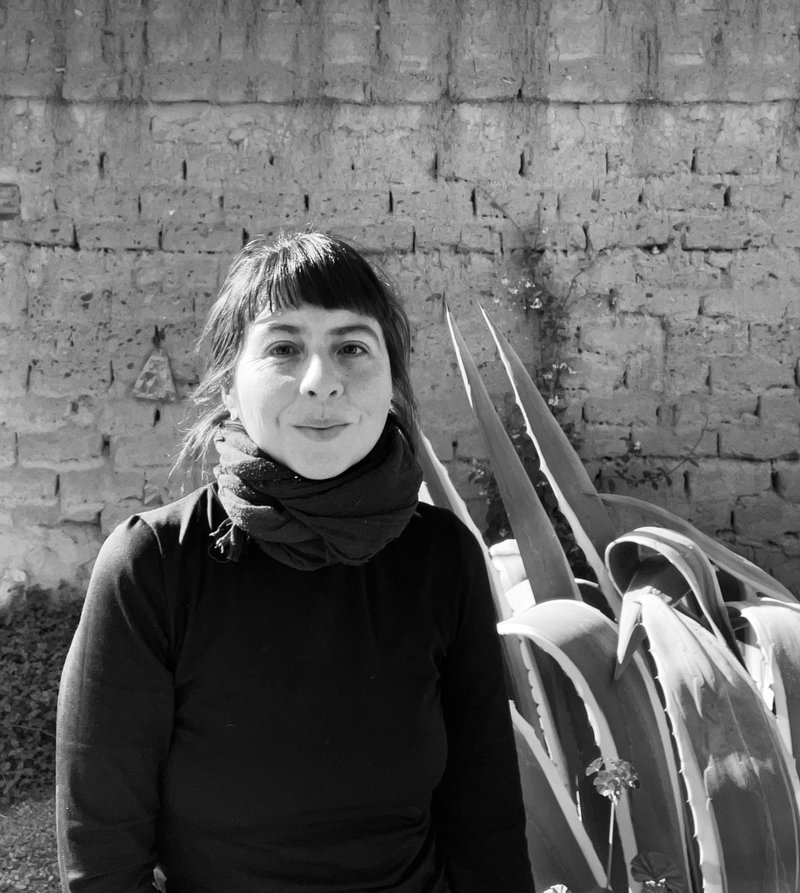Josefina Puch

Conference Report. November 2023
I would like to begin this report by thanking all of the members of CIMAM, the MUSEO MODERNO, and all of the members of the teams of both spaces for the hospitality I experienced over the 3 days of the conference, which was so beautifully organized
In particular, for my profession, these have been days full of listening and receiving a lot of information on different projects and conference topics; very mind-opening days. Many of the people I admired were there, participating as speakers at the conferences, such as Elvira Espejo, Luis Camnitzer, Pablo Lafuente, and Ana Gallardo, as well as many others whom I was unfamiliar with and whose conferences were a pleasant surprise to listen to, such as Simon Njami, Luma Hamdan, Daina Leyton, and Maria Belen Correa. All of them stood out for the passion with which they dedicate themselves to their work/research area and their willingness to overcome and learn from the adverse situations they face, depending on the context in which they find themselves.
In most of the conferences, I was able to identify issues that are present at the museum where I work, which helps one to feel not so alone or isolated from the context, including issues such as different audiences; working towards accessibility; and care among those who work or are part of a working team; the consideration of language.
As a museum located in the middle of nature, far removed from the nearest urban centers in an environment where nature and its changes (whether due to the seasons or to climate) are very important, this means, as Elvira Espejo said, that we have to open ourselves to listen to nature, either because the rivers have flooded and the road is washed out, and those of us who work there cannot get to the museum, or because the transport truck bringing works of art does not want to enter because it looks too risky, all of that means we are creative when it comes to the “set” way of doing things and we develop other abilities to be able to implement projects – patience, above all: understanding there are things that are beyond us and that timelines may change; most of the time, they are longer than we planned.
From my days shared at the conferences, I continue to have many concerns about the use of language; I am thinking particularly in terms of how our museum communicates over social media. I also feel motivated to carry out visits with groups with disabilities and to develop some of the methods that I saw were applied at the Instituto Moreira Salles, at the Museo Moderno, and on a visit to the Museo de Calcos.
I am very grateful to the entire team who were present before and during the conference days.
I think that, above all, I am left with the feeling that we do this job convinced we are contributing something, and we put a lot of our days and hours into it; we do it with the best intentions of generating a space to pause, to contemplate, trying to make the spaces where we work, where we contribute, into a breath of fresh air, in the context of a world in crisis.
Bio
Josefina Puch, Jujuy, Argentina (1984);
I spent my childhood and adolescence in the Quebrada de Humahuaca, a place where different cultural manifestations converge, originating in the region along with groups of artists from other parts of the country and the world who chose the area to develop their activities.
I studied Visual Arts (UNA), then in the search of learning a trade I found the school of jewelry (SURJA) where I took classes for 4 years. My curiosity and the great offer that the city of Buenos Aires has to offer made me take different courses ranging from sound therapy to workshops on the use of different technologies in art.
In 2011 I started with the project Rio de Plata jewelry, as a way to unify and organize myself within a creative space, from that moment I participate in different fairs and competitions of contemporary jewelry. After finishing my studies in Buenos Aires, I returned to live in Tilcara, where I set up my workshop. Currently I work at the Museo en los Cerros (MEC), a museum of Argentine photography, located in Huichara, province of Jujuy, in the area of management, coordination of activities and work on the future project of residencies for artists. I continue working on the development of my creative project.